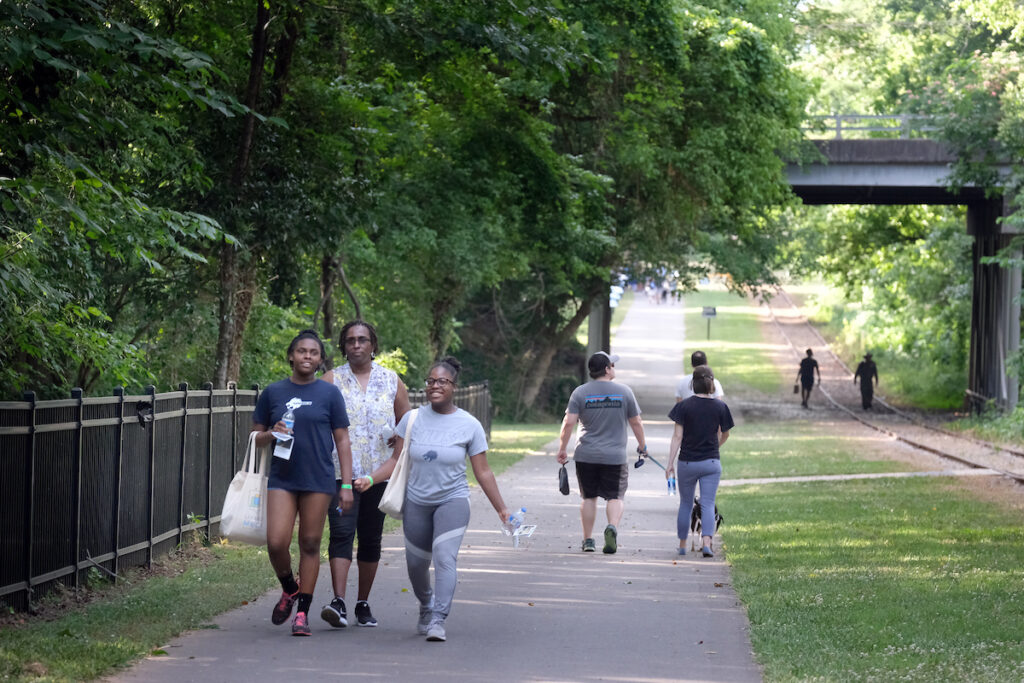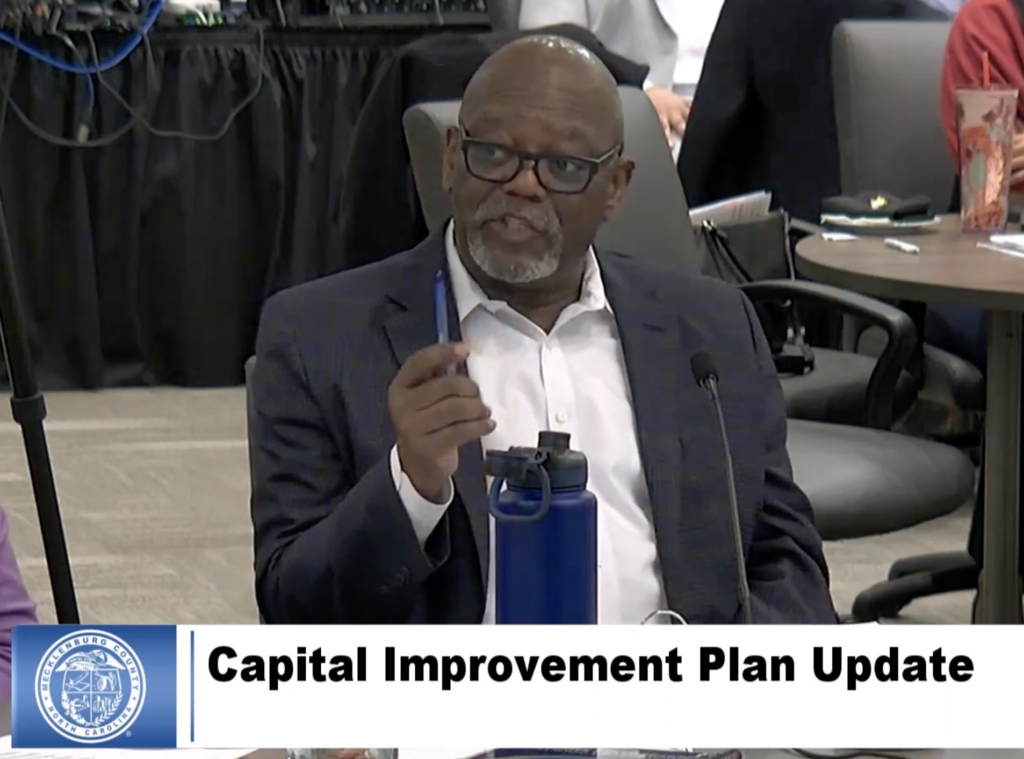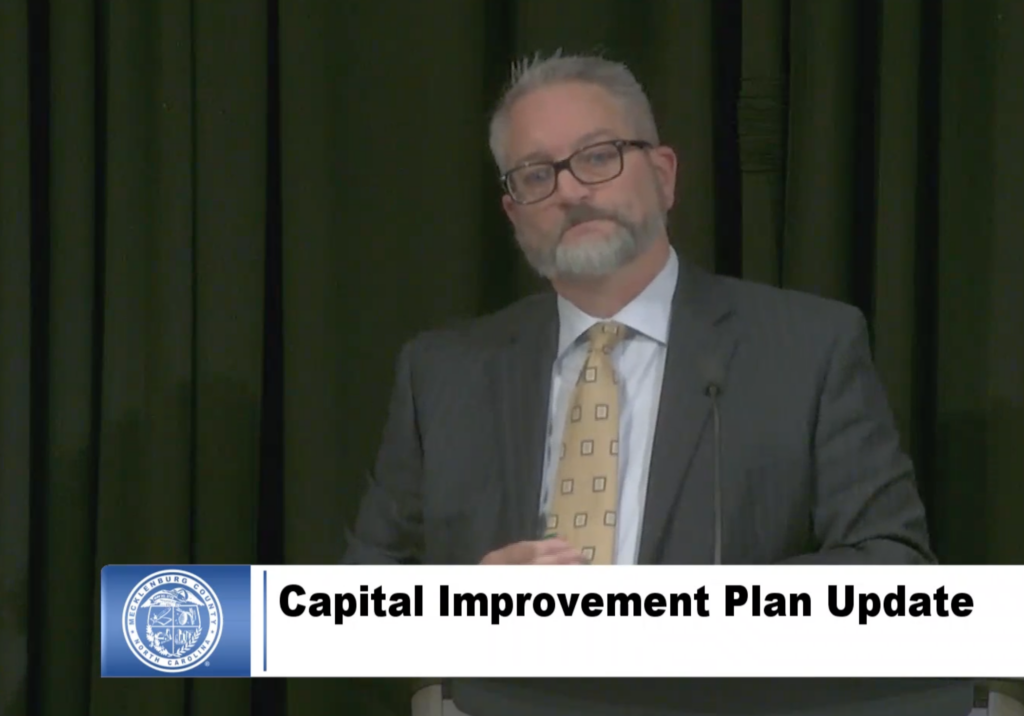Mecklenburg County’s next Capital Improvement Plan is taking shape. Here’s what we know

Mecklenburg County staff and commissioners are already planning for the next budget year, which begins in July. A big part of that process includes the next Capital Improvement Plan, a five-year program that funds a range of projects, including expanding our parks, nature preserves and greenway system.
We spent 2022 advocating for an expansion of our greenway network, so we were especially interested in this discussion. We put together this recap of the conversation — and our analysis. You can read our take of several other discussions from the budget retreat here.
Our take
Of 80 projects submitted by Mecklenburg County Park and Recreation, 51 are at risk of not receiving funding in the FY 2024-28 Capital Improvement Plan (CIP). The next five years will be a critical time to build greenways (including neighborhood connectors), parks and facilities. We need a full investment in the 80 projects in order to catch up with the goals of starting (and finishing) at least 10 new miles of greenways per year and increasing equitable access to parks and greenways for every county resident.

Mecklenburg CIP discussion: what to know
Chief Financial Officer David Boyd gave county commissioners an update on the status of the FY2019-23 CIP and the upcoming FY2024-28 CIP. He started by clarifying that this presentation was not intended to go into details about specific projects.
In fiscal years 2014-18, Mecklenburg County Park and Recreation was allotted $233 million, and eight projects are still underway that are slated to be complete by FY24. Similarly, in fiscal years 2019-23, Park and Recreation received $291 million and twenty-two of these projects are still in progress and are projected for completion by FY26.
For fiscal years 24-28, Park and Recreation requested funding for 86 projects at an escalated cost (i.e., adjusted for expected inflation) of $1 billion. Through an internal scoring process that takes into account Master Plan compliance, timing, equity and sustainability, among other categories, the county greenlit 35 Park and Recreation projects at $407 million.
This abbreviated list would leave 51 projects ($593 million) unfunded. Within the funded Park and Recreation projects, less than a dozen address greenway improvements and growth. Additionally, the county set aside $10 million annually for land acquisition to help park and greenway projects advance smoothly.
Boyd covered the three existing funding mechanisms for CIP 2024-2028: cash/pay-as-you-go, general obligation bonds (requiring a voter referendum) and installment financing. In the past, funding has come from a mix of pay-as-you-go and general obligation bonds. We implore the county to consider additional funding sources, specifically federal grant opportunities, to ensure we meet the Master Plan goal of 50 additional greenway miles by the end of FY28. It is critical that the county invest with equity by prioritizing communities that have historically been under-invested in and prioritize segments that will close gaps in the network to increase connectivity and access as recommended in the Meck Playbook.

Boyd wrapped his presentation by floating the idea of creating CIPs on a five-year rolling basis so that the county will always have a plan five years out with the ability to make adjustments year-by-year.
Commissioner Leigh Altman asked if the Park and Recreation Commission, a group of Mecklenburg residents appointed to advise county commissioners, was involved in the ranking of specific projects. Deputy County Manager Leslie Johnson clarified that the Park and Recreation department only submitted projects that were identified as Tier 1 and Tier 2 in the Meck Playbook, and the project list had been ranked in priority order by Park and Rec in consultation with the Park and Recreation Commission.
The next steps for the CIP will include a public policy workshop with the Board of County Commissioners on April 11 and a review of the CIP with the board on May 9.
Thanks for reading!
As a nonprofit, community support is essential for us to keep doing what we do — including providing free articles like this. If you found this article helpful, please consider supporting Sustain Charlotte so we can continue advocating for a better future and working with residents, neighborhood organizations, government agencies, nonprofits, and businesses to solve the most critical challenges to Charlotte’s long-term social, economic, and environmental health.
Want to stay in the loop? Subscribe to our free, weekly newsletter and follow us on Twitter, Facebook, and Instagram.
